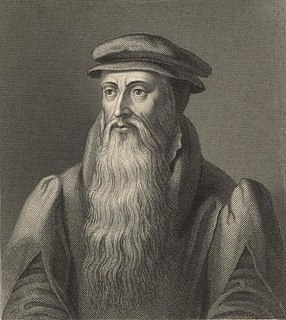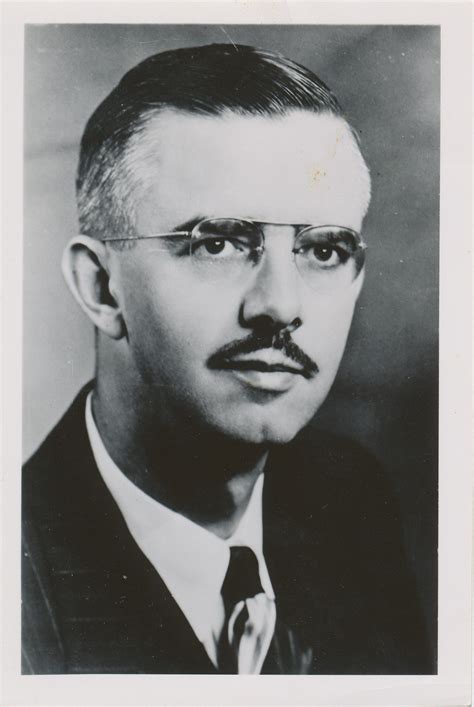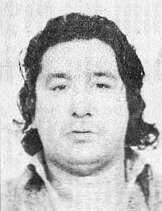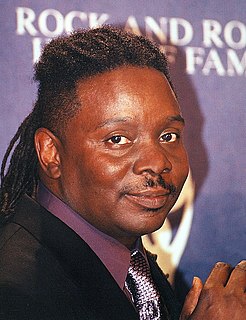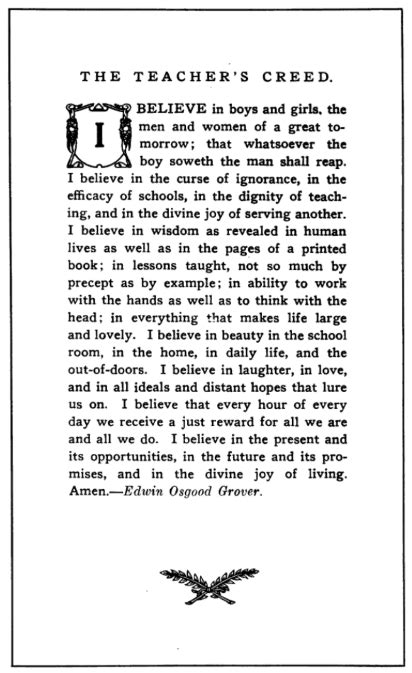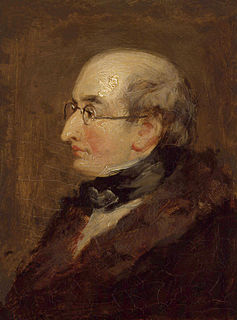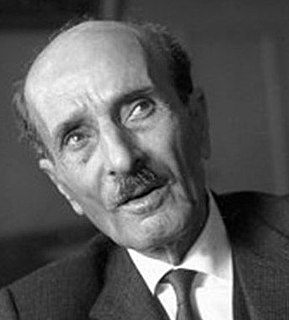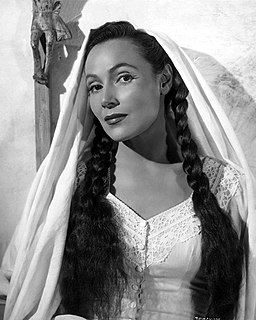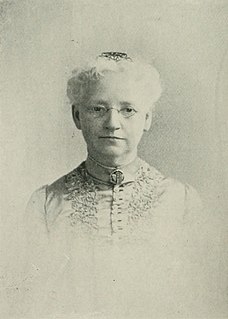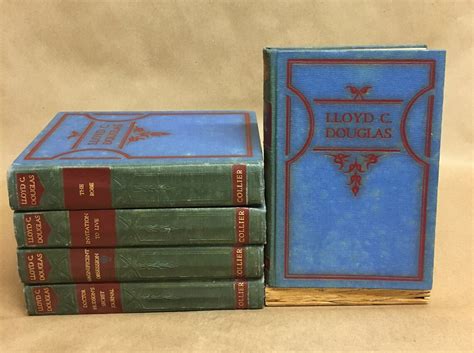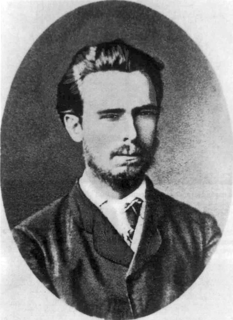Top 681 Deed Quotes & Sayings - Page 11
Explore popular Deed quotes.
Last updated on April 20, 2025.
Let the advocate of animal food, force himself to a decisive experiment on its fitness, and as Plutarch recommends, tear a living lamb with his teeth, and plunging his head into its vitals, slake his thirst with the steaming blood; when fresh from the deed of horror let him revert to the irresistible instincts of nature that would rise in judgment against it, and say, Nature formed me for such work as this. Then, and then only, would he be consistent.
This tremendous event is still on its way, still wandering; it has not yet reached the ears of men. Lightning and thunder require time; the light on the stars requires time; deeds though done, still require time to be seen and heard. This deed is still more distant from them than the most distant stars - and yet they have done it themselves.
Are we not Spirits, that are shaped into a body, into an Appearance; and that fade away again into air and Invisibility? Oh, Heaven, it is mysterious, it is awful to consider that we not only carry a future Ghost within us; but are, in very deed, Ghosts! These Limbs, whence had we them; this stormy Force; this life-blood with its burning Passion? They are dust and shadow; a Shadow-system gathered round our Me; wherein, through some moments or years, the Divine Essence is to be revealed in the Flesh.
These are illusions of popular history which successful religion must promote: Evil men never prosper; only the brave deserve the fair; honesty is the best policy; actions speak louder than words; virtue always triumpths; a good deed is its own rewards; any bad human can be reformed; religious talismans protect one from demon possession; only females understand the ancient mysteries; the rich are doomed to unhappiness
The general consent of all that sect is that God (by his foreknowledge, counsel, and wisdom) has no assured election, neither yet any certain reprobation, but that every man may elect or reprobate himself by his own free will, which he has (say they) to do good or evil ... [All these things are] forged by their own brains, and polished by the finest of their wits, when yet in very deed they are but the rotten heresies of ... Pelagius, long ago confuted by Augustine.
If I were not an atheist, I would believe in a God who would choose to save people on the basis of the totality of their lives and not the pattern of their words. I think he would prefer an honest and righteous atheist to a TV preacher whose every word is God, God, God and whose every deed is foul, foul, foul.
Will not the very moment of great disillusionment with my brother or sister be incomparably wholesome for me becuase it so thoroughly teaches me that both of us can never live by our own words and deeds, but only by that one Word and deed that really binds us together, the forgiveness of sins in Jesus Christ? The bright day of Christian community dawns wherever the early morning mists of dreamy visions are lifting
Give me ... a compassionate heart, quickly moved to grieve for the woes of others and to active pity for them, even as our Lord Jesus Christ beheld our poverty and hasted to help us. Give me grace ever to alleviate the crosses and difficulties of those around me, and never to add to them; teach me to be a consoler in sorrow, to take thought for the stranger, the widow, and the orphan; let my charity show itself not in words only but in deed and truth.
God is dead. God remains dead. And we have killed him. How shall we comfort ourselves, the murderers of all murderers? What was holiest and mightiest of all that the world has yet owned has bled to death under our knives: who will wipe this blood off us? What water is there for us to clean ourselves? What festivals of atonement, what sacred games shall we have to invent? Is not the greatness of this deed too great for us? Must we ourselves not become gods simply to appear worthy of it?
Jesus’ message of the Kingdom of God is the announcement by word and deed that God is acting and manifesting dynamically his redemptive will in history. God is seeking out sinners; he is inviting them to enter into the messianic blessing; he is demanding of them a favorable response to his gracious offer. God has again spoken. A new prophet has appeared, indeed one who is more than a prophet, one who bring to people the very blessings he promises.
There are five dark matters and five lamps. Love of this world is darkness, and the fear of Allaah is its lamp. Sin is darkness, and its lamp is repentance. The grave is darkness, and its lamp is 'none has the right to be worshipped but Allaah, and Muhammad is the messenger of Allaah.' The hereafter is darkness, and its lamp is the good deed. The Siraat is darkness, and its lamp is certainty of faith.
Silence,they say,is the voice of complicity. But silence is impossible. Silence screams. Silence is the message,just as doing nothing is an act. Let who you are ring out and resonate in every word and deed. Yes,become who you are. There's no sidestepping your own being or your own responsibility. What you do is who you are. You are your own comeuppance. You become your own message. You are the message. In the Spirit of Crazy Horse.
When one speaks of humanity, the idea is fundamental that this is something which separates and distinguishes man from nature. In reality, however, there is no such separation: "natural" qualities and those called truly "human" are inseparably grown together. Man, in his highest and noblest capacities, is wholly nature and embodies its uncanny dual character. Those of his abilities which are terrifying and considered inhuman may even be the fertile soil out of which alone all humanity can grow in impulse, deed, and work.
By the rude bridge that arched the flood,
Their flag to April's breeze unfurled,
Here once the embattled farmers stood,
And fired the shot heard round the world.
The foe long since in silence slept;
Alike the conqueror silent sleeps;
And Time the ruined bridge has swept
Down the dark stream which seaward creeps.
On this green bank, by this soft stream,
We set to-day a votive stone;
That memory may their deed redeem,
When, like our sires, our sons are gone.
A faithful person sees life from the perspective of trust, not fear. Bedrock faith allows me to believe that, despite the chaos of the present moment, God does reign; that regardless of how worthless I may feel, I truly matter to a God of love; that no pain lasts forever and no evil triumphs in the end. Faith sees even the darkest deed of all history, the death of God's Son, as a necessary prelude to the brightest.
Nelson Mandela set his course a long time ago, and in word and deed, years of determination, sacrifice, and faith--he set a new standard in the likes of Gandhi, Mother Teresa, and Martin Luther King, Jr. --changing the world and all of us for the better. I was one of those regular citizens watching when he made his first trip here after being released from prison. Amazing memories. I regret that I never met him in person. May he rest in peace
I urge all Texans to answer the call to serve those in need. By volunteering their time, energy or resources to helping others, adults and youngsters follow Christ's message of love and service in thought and deed. Therefore I, George W. Bush, Governor of Texas, do hereby proclaim June 10, 2000, Jesus Day in Texas and urge the appropriate recognition whereof. In official recognition whereof, I hereby affix my signature this 17th day of March, 2000.
Santa Claus is anyone who loves another and seeks to make them happy; who gives himself by thought or word or deed in every gift that he bestows; who shares his joys with those who are sad; whose hand is never closed against the needy; whose arm is ever outstretched to aid the week; whose sympathy is quick and genuine in time of trouble; who recognizes a comrade and brother in every man he meets upon life's common road; who lives his life throughout the entire year in the Christmas spirit.
What hands are here? ha! they pluck out mine eyes! Will all great Neptune’s ocean wash this blood clean from my hand? No; this my hand will rather the multitudinous seas incarnadine, making the green one red.” “My hands are of your colour; but I shame to wear a heart so white. A little water clears us of this deed: How easy it is then! Your constancy hath left you unattended.
Who ever saw his old clothes, - his old coat, actually worn out, resolved into its primitive elements, so that it was not a deed of charity to bestow it on some poor boy, by him perchance to be bestowed on some poorer still, or shall we say richer, who could do with less? I say, beware of all enterprises that require new clothes, and not rather a new wearer of clothes.
How much reverence has a noble man for his enemies!--and such reverence is a bridge to love.--For he desires his enemy for himself, as his mark of distinction; he can endure no other enemy than one in whom there is nothing to despise and very much to honor! In contrast to this, picture "the enemy" as the man of ressentiment conceives him--and here precisely is his deed, his creation: he has conceived "the evil enemy," "the Evil One," and this in fact is his basic concept, from which he then evolves, as an afterthought and pendant, a "good one"--himself!
A man can be beautiful physically, mentally, or personality wise. True beauty, though, is in the spirit. A genuine man who understands right and wrong, with a strong sense of self is beautiful. A man who can be compassionate and caring, but firm and wise. Someone who can do the right thing no matter who's around to see it. Even if the deed is unseen and unrecognized. That is a beautiful man. One today is worth two tomorrows.
Human life is precious, sublime and meaningful. But by involvement in purely worldly pursuits, the greatness of human birth is forgotten. Without human values, life is meaningless. When there is purity in thought, word and deed, human values are practised. The unity of the three H's is essential. 'Heart, Head and Hand. ' But today this unity is absent among people, with the result that men are becoming inhuman.
A woman’s magazine quiz: Question: You decide to do the dread deed and just as things are starting to get hot he comes, rolls over, and asks, “Was it good for you?” You: a. Say, “God, yes! That was the best seventeen seconds of my life” b. Say, “Sure, as good as it gets for me with a man.” c. Put a Certs in your navel and say, “That’s for you, Mr. Bunnyman. You can have it on your way back up, after the job is finished
Capital punishment is the most premeditated of murders, to which no criminal's deed, however calculated can be compared. For there to be an equivalency, the death penalty would have to punish a criminal who had warned his victim of the date at which he would inflict a horrible death on him and who, from that moment onward, had confined him at his mercy for months. Such a monster is not encountered in private life.
My friend, you had horses, and deed of arms, and the free fields; but she, being born in the body of a maid, had a spirit and courage at least the match of yours. Yet she was doomed to wait upon an old man, whom she loved as a father, and watch him falling into a mean dishonoured dotage; and her part seemed to her more ignoble than that of the staff he leaned on. -Gandalf to Eomer, of Eowyn
... only the good deed done for Christ's sake brings us the fruits of the Holy Spirit. All that is not done for Christ's sake, even though it be good, brings neither reward in the future life nor the grace of God in this life. That is why our Lord Jesus Christ said: 'He who gathers not with Me scatters' (Lk. 11:23).
Since the white people collectively have practiced the worst form of hatred against Negroes in America and they know that they are guilty of it, now when The Honorable Elijah Muhammad comes along and begins to list the historic deed - the historic attitude, the historic behavior of the white man in this country toward the black people in this country, again, the white people are so guilty and they can't stop doing these things to make Mr. Muhammad appear to be wrong, so they hide their wrong by saying "he is teaching hatred."
A real man doesn't have to run from his mother, and may even have to face the reality that no great deed is going to be great enough for him to ransom himself completely, and he may always be in his mother's debt. If he understands that . . . he won't have to feel guilty, and he won't have to please her completely. He can go ahead and be nice to her and let her be part of his life.
There is a tendency among many shallow thinkers of our day to teach that every human act is a reflex, over which we do not exercise human control. They would rate a generous deed as no more praiseworthy than a wink, a crime as no more voluntary than a sneeze. . . Such a philosophy undercuts all human dignity. . . All of us have the power of choice in action at every moment of our lives.
Whoever sides with the revolutionary people is a revolutionary. Whoever sides with imperialism, feudalism and bureaucrat-capitalism is a counter-revolutionary. Whomever sides with the revolutionary people in words only but acts otherwise is a revolutionary in speech. Whoever sides with the revolutionary people in deed as well as in word is a revolutionary in the full sense.
I buried him with mine own hands, in a place he showed me once when I was a squire at Storm’s End. No one shall ever find him there to disturb his rest.” He looked at Jaime defiantly. “I will defend King Tommen with all my strength, I swear it. I will give my life for his if need be. But I will never betray Renly, by word or deed. He was the king that should have been. He was the best of them.
But the moon came slowly up in all her gentle glory, and the stars looked out, and through the small compass of the grated window, as through the narrow crevice of one good deed in a murky life of guilt, the face of Heaven shone bright and merciful. He raised his head; gazed upward at the quiet sky, which seemed to smile upon the earth in sadness, as if the night, more thoughtful than the day, looked down in sorrow on the sufferings and evil deeds of men; and felt its peace sink deep into his heart.
The essence of totalitarian government, and perhaps the nature of every bureaucracy, is to make functionaries and mere cogs in the administrative machinery out of men, and thus to dehumanize them. And one can debate long and profitably on the rule of Nobody, which is what the political form known as bureau-cracy truly is….we have become very much accustomed by modern psychology and sociology, not to speak of modern bureaucracy, to explaining away the responsibility of the doer for his deed in terms of this or that kind of determinism.
I have examined the death penalty under each of its two aspects: as a direct action, and as an indirect one. What does it come down to? Nothing but something horrible and useless, nothing but a way of shedding blood that is called a crime when an individual commits it, but is sadly called "justice" when society brings it about. Make no mistake, you lawmakers and judges, in the eyes of God as in those of conscience, what is a crime when individuals do it is no less an offense when society commits the deed.
Now we will no longer concede so easily that anyone has the truth; the rigorous methods of inquiry have spread sufficient distrust and caution, so that we experience every man who represents opinions violently in word and deed as any enemy of our present culture, or at least as a backward person. And in fact, the fervor about having the truth counts very little today in relation to that other fervor, more gentle and silent, to be sure, for seeking the truth, a search that does not tire of learning afresh and testing anew.
The explanation of the propensity of the English people to portrait painting is to be found in their relish for a Fact. Let a man do the grandest things, fight the greatest battles, or be distinguished by the most brilliant personal heroism, yet the English people would prefer his portrait to a painting of the great deed. The likeness they can judge of; his existence is a Fact. But the truth of the picture of his deeds they cannot judge of, for they have no imagination.
So, think as if your every thought were to be etched in fire across the sky for all and everything to see.For so, in truth, it is.So speak as if the world entire were but a single ear intent on hearing what you say.And so, in truth, it is.Do as if your every deed were to recoil upon your heads.And, so in truth it does.So wish as if you were the wish.And so, in truth, you are.So live as if your God Himself had need of you his life to live.And so, in truth, he does.
Take care of your inner beauty, your spiritual beauty, and that will reflect in your face. We have the face we created over the years. Every bad deed, every bad fault will show on your face. God can give us beauty and genes can give us our features, but whether that beauty remains or changes is determined by our thoughts and deeds.
Though not a remarkably precocious child in other respects, she seemed to have very clear and correct views on almost every subject connected with her duty to God and her neighbor; was very truthful both in word and deed, very strict in her observance of the Sabbath - though the rest of the family were by no means particular in that respect - very diligent in her studies, respectful to superiors, and kind to inferiors and equals; and she was gentle, sweet-tempered, patient, and forgiving to a remarkable degree.
The theology of the average colored church is basing itself far too much upon Hell and Damnation-upon an attempt to scare people into being decent and threatening them with the terrors of death and punishment. We are still trained to believe a good deal that is simply childish in theology. The outward and visible punishment of every wrong deed that men do the repeated declaration that anything can be gotten by anyone at any time by prayer.
Every virtuous woman desires a husband to whom she can look for guidance and protection through this world. God has placed this desire in woman's nature. It should be respected by the stronger sex. Any man who takes advantage of this, and humbles a daughter of Eve to rob her of her virtue, and cast her off dishonored and defiled, is her destroyer, and is responsible to God for the deed.
Of ill-temper there are three kinds: irascibility, bitterness, sullenness. It belongs to the ill-tempered man to be unable to bear either small slights or defeats but to be given to retaliation and revenge, and easily moved to anger by any chance deed or word. Ill-temper is accompanied by excitability of character, instability, bitter speech, and liability to take offence at trifles and to feel these feelings quickly and on slight occasions.
This faith, is not like a deed to a house in which one may live with full rights of possession. It is more like a kit of tools with which a man may build himself a house. The tools will be worth just what he does with them. When he lays them down, they will have no value until he takes them up again.
We must make the building of a free society once more an intellectual adventure, a deed of courage. Unless we can make the philosophic foundations of a free society once more a living intellectual issue, and its implementation a task which challenges the ingenuity and imagination of our liveliest minds, the prospects of freedom are indeed dark. But if we can regain that belief in the power of ideas which was the mark of liberalism at its best, the battle is not lost.
Perhaps that is our doom, our human curse, to never really know one another. We erect edifices in our minds about the flimsy framework of word and deed, mere totems of the true person, who, like the gods to whom the temples were built, remains hidden. We understand our own construct; we know our own theory; we love our own fabrication. Still . . . does the artifice of our affection make our love any less real?
One interesting feature of criticism is seen in the ease with which it discovers what Addison called the specific quality of an author. In Livy, it will be the manner of telling the story; in Sallust, personal identification with the character; in Tacitus, the analysis of the deed into its motive. If the same test be applied to painters, it will find the prominent faculty of Correggio to be manifested in harmony of effect; of Poussin, in the sentiment of his landscapes; and of Raffaelle, in the general comprehension of his subject.
This is no magnificent deed, because I do not want followers, and I mean this. The moment you follow someone you cease to follow Truth. I am not concerned whether you pay attention to what I say or not. I want to do a certain thing in the world and I am going to do it with unwavering concentration. I am concerning myself with only one essential thing: to set man free. I desire to free him from all cages, from all fears, and not to found religions, new sects, nor to establish new theories and new philosophies.
The Revolutionist is a doomed man. He has no private interests, no affairs, sentiments, ties, property nor even a name of his own. His entire being is devoured by one purpose, one thought, one passion - the revolution. Heart and soul, not merely by word but by deed, he has severed every link with the social order and with the entire civilized world; with the laws, good manners, conventions, and morality of that world. He is its merciless enemy and continues to inhabit it with only one purpose - to destroy it.
Historians will come to their own judgments about President Kennedy. Here is how I choose to remember him. He was an heir to wealth who felt the anguish of the poor. He was an orator of excellence who spoke for the voiceless. He was a son of Harvard who reached out to the sons and daughters of Appalachia. He was a man of special grace who had a special care for the retarded and handicapped. He was a hero of war who fought hardest for peace. He said and proved in word and deed that one man can make a difference.
When I was young, I had to choose between the life of being and the life of doing. And I leapt at the latter like a trout to a fly. But each deed you do, each act, binds you to itself and to its consequences, and makes you act again and yet again. Then very seldom do you come upon a space, a time like this, between act and act, when you may stop and simply be. Or wonder who, after all, you are.
There is a kind of crying I hope you have not experienced, and it is not just crying about something terrible that has happened, but a crying for all of the terrible things that have happened, not just to you but to everyone you know and to everyone you don’t know and even the people you don’t want to know, a crying that cannot be diluted by a brave deed or a kind word, but only by someone holding you as your shoulders shake and your tears run down your face.
Every time a resolve or a fine glow of feeling evaporates without bearing practical fruit is worse than a chance lost; it works to hinder future resolutions and emotions from taking the normal path of discharge. There is no more contemptible type of human character than that of the nerveless sentimentalist and dreamer, who spends his life in a weltering sea of sensibility and emotion, but who never does a manly concrete deed.
The way to Christ is first through humility, second through humility, and third through humility. If humility does not precede and accompany and follow every good work we do, if it is not before us to focus on, it it is not beside us to lean upon, if it is not behind us to fence us in, pride will wrench from our hand any good deed we do at the very moment we do it.
I happen to think that Jesus was the greatest hero of all time. I don't think you could invent that kind of a hero. He had it all - everything that the human spirit could yearn for. There is nothing that man ever said or did, by word or deed that is evil. That is not full of compassion. That is not full of love for your neighbor whether he's down or out, or up - no matter what. He taught that you must love your neighbor whether he's a crook, a beggar, whether he's rich or poor.
Major Richard Bong was an example of the tragic and terrible price we must pay to maintain principles of human rights, of greater value than life itself. This gallant Air Force hero will be remembered because he made his final contribution to aviation in the dangerous role of test pilot of an untried experimental plane, a deed that places him among the stout-hearted pioneers who gave their lives in the conquest of sky and space.
And after your death, when most of you for the first time realize what life here is all about, you will begin to see that your life here is almost nothing but the sum total of every choice you have made during every moment of your life. Your thoughts, which you are responsible for, are as real as your deeds. You will begin to realize that every word and every deed affects your life and has also touched thousands of lives.





